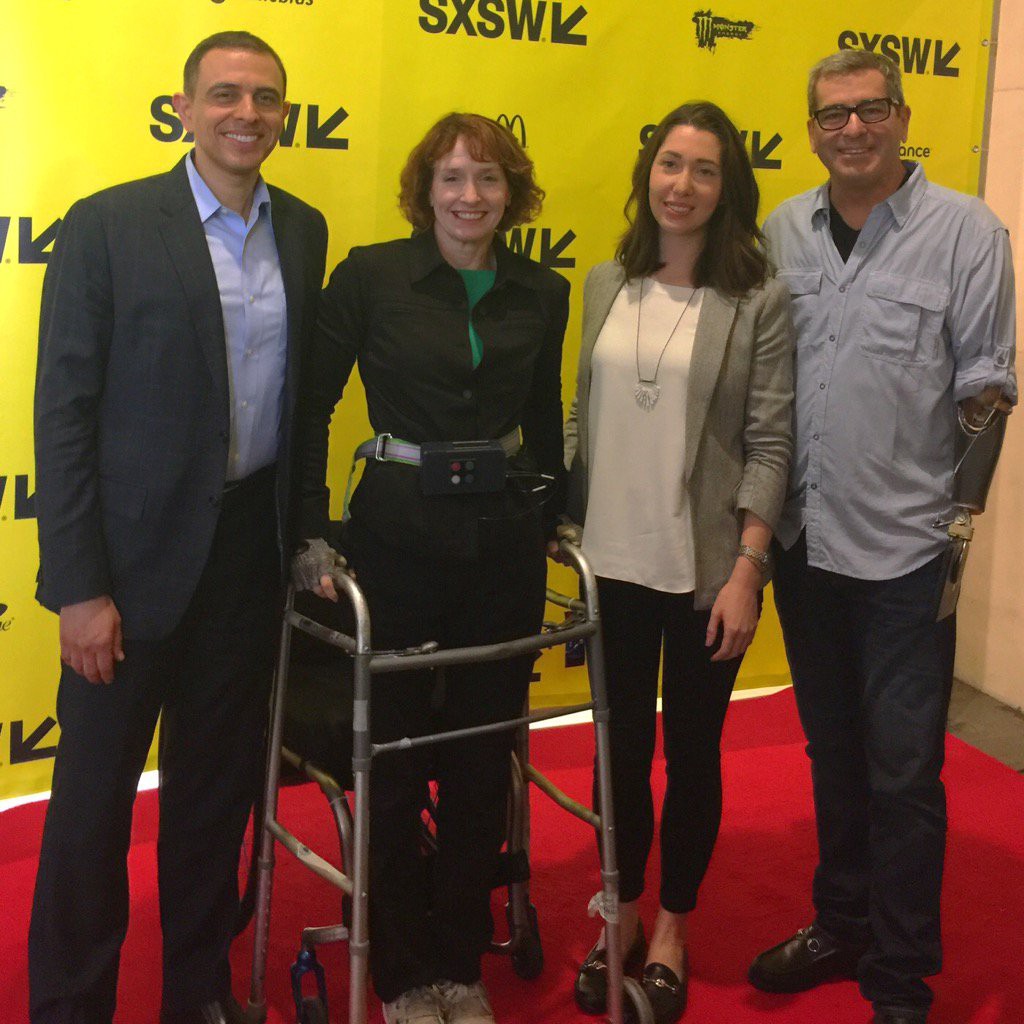Speaking this past weekend at South by Southwest in Austin, TX, Joe Biden charged that we must all to come together to end cancer. He was met with a standing ovation. As he was giving his talk, my colleagues and I were speaking one floor below at Austin’s convention center, discussing the importance of collaborative science to address not just cancer, but all matter of impairment and disability.
Speaking to colleagues at the conference I was thrilled to see signs of major breakthroughs: VR technology to help kids better tolerate medical procedures, early renderings of an artificial pancreas, reanimation of the limbs of a man with quadriplegia and use of a cell phone-activated dental implant to treat migraines. Biden was right: When scientists, researchers and physicians from different disciplines come together and collaborate, nothing is impossible.
And yet, none of this scientific firepower can replace what is perhaps the most critical ingredient for collaboration, a skill so important that without it no real progress will ever be possible: Listening.
Some years ago, a patient came to the hospital where I worked for a procedure. Her doctors performed the operation, but when the patient complained she was in pain weeks later, the doctors were baffled. Assuming that the woman was experiencing a normal level of pain from the procedure, they dismissed her complaints. Pain, after all, is a subjective experience, one that cannot be seen or measured. What one person may describe as severe pain may register to another as a mild inconvenience. A few weeks later, the woman presented to the emergency room in crippling pain with changes to her thinking and severe confusion. Examined closely, it was discovered that her pain was caused by a serious and life-threatening condition. She was immediately treated. Her life was saved, but many weeks elapsed between her first report of pain and her condition being addressed. During that time, she endured prolonged suffering and advancement of her condition. How might this have played out differently if that first physician listened more closely to the patient’s concern?

The same attention deficit is evident in the other direction. I work with patients every day and often, I see that patients leave encounters with physicians knowing very little about what information was shared with them, what course of treatment is being taken, and how their condition is expected to progress. This is typically due to several factors: anxiety, distraction, pain, stress, and cognitive difficulties (attention and concentration problems, slow processing speed, difficulty with learning). This is understandable given the extreme stress of hospitalization (I work primarily with patients who are hospitalized) but nonetheless, this disconnection between patients and their healthcare providers makes for incomplete conversations and limits understanding between the patient and the physician. These misunderstandings and incomplete conversations impact our ability to help one another.
I have also seen what can happen when people listen to one another, taking care to deeply understand the person sitting across from them. At The Ohio State University, for example, my colleagues pioneered a brain implant that helped a young man named Ian Burkhart, who had lost the command of his limbs in a diving accident, regain partial control of his arms and hands. To do this, Ian had to come into the lab multiple times a week (as he continues to do) to work with the technology. His practice with the devices provides the data needed to help the engineers and programmers decipher his brain activity so that the implant in his brain can “learn” to communicate directly with his muscles, bypassing his damaged spinal cord.
Conversation is crucial if we are going to cure any condition or conquer any disease. As our technologies improve and become more sophisticated, they require cooperation, collaboration and partnership with the patients helping us develop them. Ian is a true partner in research, not a subject or participant. He listens to us, and we to him, a crucial dialogue that has led to a major scientific breakthrough.
As we continue to work towards other great breakthroughs and discoveries, let us not forget that every great revelation begins in a conversation. Even if we are not trying to cure cancer or develop the next big innovation, each of us can play a critical role in improving the lives of those around us, simply by listening.
Originally published at medium.com


